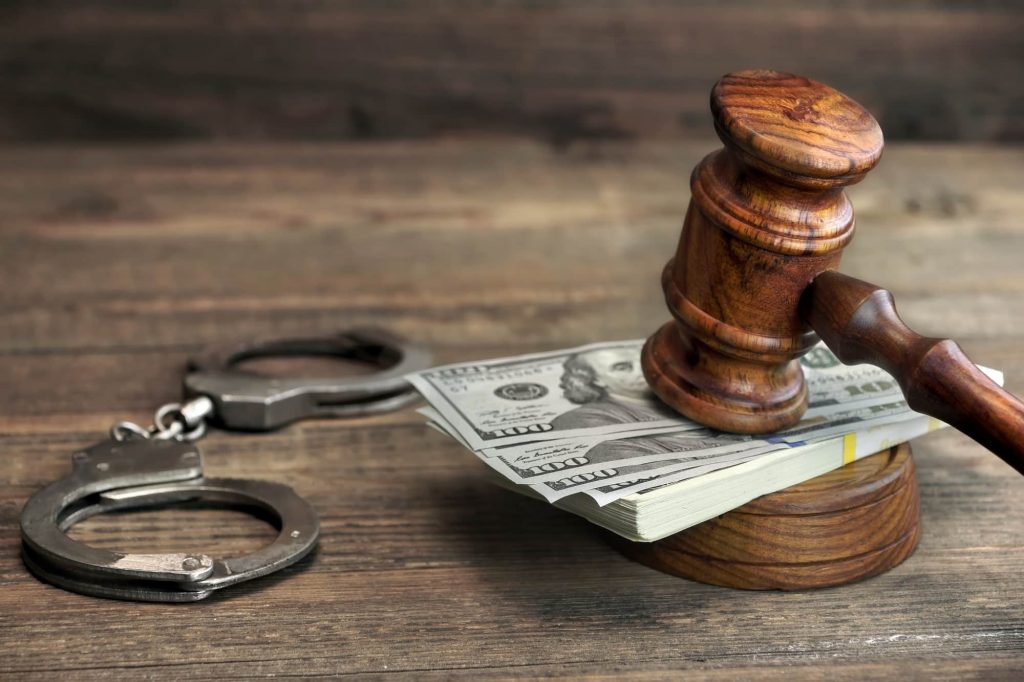A bail bond is a written promise to pay an amount set by a court if the defendant fails to appear at their court proceedings. A defendant would usually get a bail bond from either a friend or family member, sometimes with help from a bail bondsman. In some cases, the defendant may be required to put up property as collateral for the bail bond. The defendant must pay back the bail bond (sometimes with additional interest) to avoid forfeiture of this collateral.
Bail Bond Definition: A bail bond is a contract between an individual and their local government, where the individual agrees to pay an unreasonable sum of money if they fail to attend their judicial proceedings. The court then pays that sum of money to the person that put down the bond. If the individual fails to appear, then they forfeit their collateral and must pay additional fees for breaking their contract with the court.
A bail bond is a legal agreement between you or your co-signer (the one who put down money) and usually a third party called a bail bondsman. If you’re a bail bondsman, then you’re a private citizen who has agreed to take on the responsibility of acting as a surety for your client (the defendant) in return for payment from the party who pays their bail. This is usually paid in full at the time when your bond is given and it is rarely refunded if the defendant doesn’t show up for their court appearance.
Bail bonds are typically used to get out of jail after being arrested. To be released from custody, you have to pay a certain amount of money that is determined by your bail bond amount or cash bail . You can either do this through a bail bondsman or the jail itself.
If you are being accused of a crime, then getting bail or bail bond is an option in some cases. This means that you will not have to stay in jail until your court date where you can prove your innocence. Instead, the courts allow defendants to be released on their own recognizance or with the help of a bondsman. Once you meet your court date, a judge will determine whether or not you will return to complete your trial.
Bail Bond Types
There are two types of bail bonds: secured and unsecured . This all depends on how much money was put down when the defendant was originally release from custody. If the defendant fails to appear in court, the government keeps the collateral money which was paid at the time when bail was posted.
Secured Bail Bonds
When you give a secured bond, then that means that you are giving your property as collateral for your return to court. The more valuable items you give as collateral, such as vehicles, the more money you will be required to pay. If you fail to return for your court date, then the government can seize your property.
Unsecured Bail Bonds
If you are unable to provide collateral or are given an unsecured bond, then this means that your signature is all that’s protecting you from failing to return to court. This means that you are legally obligated to pay the full bail amount in cash or with a cashier’s check when your court date comes. If you fail to appear, then the government will retain all of the money that was posted by you or your co-signer.
Bail Bond Collateral
When giving collateral, the defendant is agreeing to pay their bail bond agency or surety. If they fail to appear in court, then this agreement allows for the agency to keep all of the money that was put down to ensure their release.
When you are given an unsecured bail bond, then you are signing a legal contract saying that if you fail to appear in court, then you must pay the amount of money that was posted for your release. This does not include any interest or late fees.
Bail Bond Costs
The cost of a bail bond will generally be 10% of the total bail amount . However, this can vary depending on where you live and what type of financial situation you’re in.
Bail Bondsman vs Bail Bond Agent
A bail bondsman’s responsibilities can sometimes overlap with that of a bail bond agent. However, there are some differences between the two. A bail bond agent is usually an employee or representative of a licensed and insured company and they work directly for the surety.
Bail Bondsman
A bail bondsman is a private citizen who has been licensed to work with the court in order to help their client post bail. This means that they have been deemed trustworthy and reliable by the courts in order for them to be eligible for a license. They are not employees of a company, but instead work for themselves and charge a percentage of the bail amount to provide their services.
